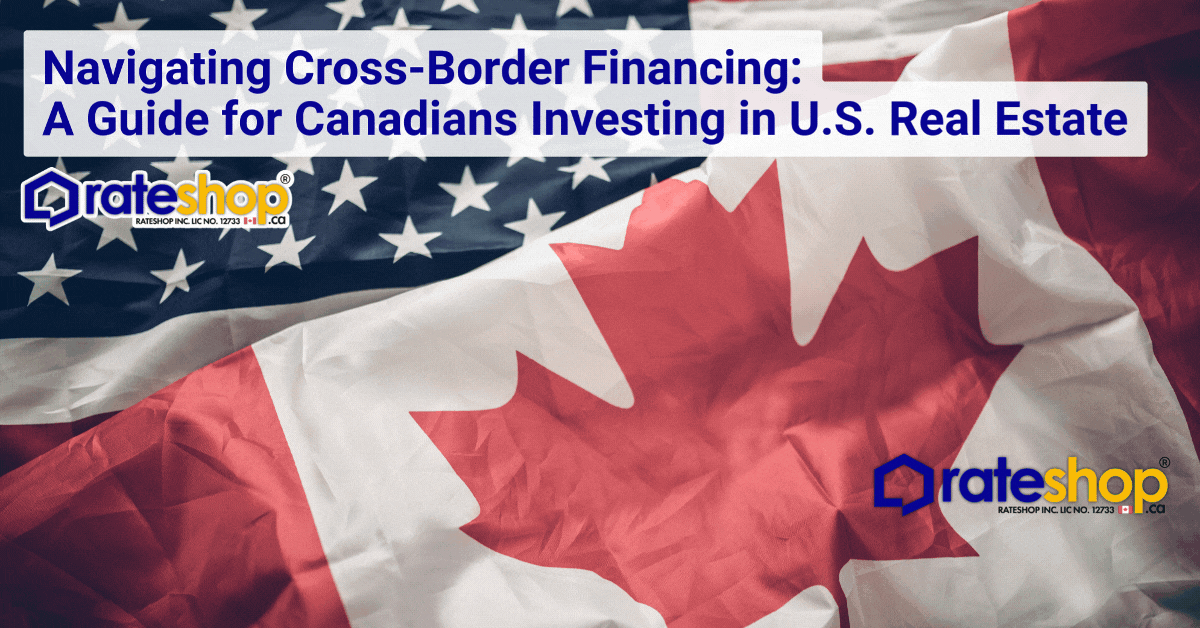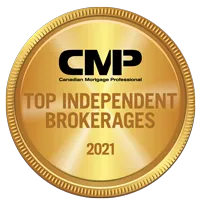US-Florida Purchase & Refinance Mortgage
USA Mortgages for Investors
Cross-Border Mortgage Approvals: Invest in Rentals in 32 States & build a Cash-Flow positive portfolio
Migration Assistance: Purchase with Equity in Canadian properties and Get Approved in USA
Currency Transfer: Lowest cost to transfer funds to USA through our MSB Partners
Work with a USA licensed Mortgage Brokerage to access FHA, USDA, VA, DCR Programs

Discover the best mortgage rates and lowest mortgage rates in Canada at RateShop. Compare Canada mortgage lending rates from top lenders to secure your ideal home loan deal today.

Cross-Border Financing: Your Guide to Investing in U.S. Real Estate as a Canadian
Unlock the Door to U.S. Property Investment – Finance Your Cross-Border Dreams with Confidence!
Are you a Canadian looking to invest in U.S. real estate? Cross-Border Financing makes it possible to buy property south of the border, whether it’s a vacation home, rental property, or commercial investment. From understanding the process to navigating taxes and currency exchange, this guide covers everything you need to know. Let’s explore how you can expand your real estate portfolio across the border!
What Is Cross-Border Financing? A Complete Guide for Canadians
Cross-border financing allows Canadians to secure mortgages for U.S. properties. Here’s why it’s a game-changer:
Access to U.S. Markets: Invest in thriving real estate markets like Florida, Arizona, or Texas.
Diverse Options: Finance residential, commercial, or vacation properties.
Flexible Terms: Tailored solutions for Canadian investors.
Why Invest in U.S. Real Estate? Benefits for Canadian Investors
The U.S. real estate market offers unique advantages for Canadians:
Diversification: Spread your investments across multiple markets.
Strong Returns: Benefit from high rental demand and property appreciation.
Favorable Exchange Rates: Take advantage of the CAD to USD conversion.
Quick Tip: Use a home mortgage rate calculator to estimate your payments and affordability.
How Cross-Border Financing Works: A Step-by-Step Guide
Ready to get started? Follow these steps:
Get Pre-Approved: Work with a U.S. lender or cross-border mortgage specialist.
Choose Your Property: Find a home or investment property that fits your goals.
Submit Your Application: Provide financial documents and property details.
Close the Loan: Finalize the terms and start earning rental income or capital gains.
5 Year - Fixed Term from
3.89%
Apply for your Best Rate in minutes.
Everyone's rate is unique.What's yours?
It is our job to get your lowest possible rate. Your rate qualification depends on certain factors, such as credit score and home equity as per regulations.
*Advertised rates may not be offered by this lender. Mortgage lender offers are aggregated by RateShop & its Brokerage Network subject to change without notice. Speak with our mortgage broker about APR and qualification requirements.

Types of Cross-Border Financing Options for Canadians
Not all financing options are the same. Here’s a quick breakdown:
U.S. Mortgages: Loans from U.S. banks or lenders.
Canadian Bank U.S. Dollar Mortgages: Offered by Canadian banks for U.S. properties.
Private Lenders: Alternative financing for unique situations.
Pro Tip: Compare the best mortgage rates in Canada and the U.S. to find the best deal.
Tax Implications of Cross-Border Real Estate Investing
Investing in U.S. real estate comes with tax considerations:
U.S. Property Taxes: Annual taxes based on property value.
Rental Income Taxes: Report income to both the IRS and CRA.
Double Taxation Treaties: Avoid paying taxes twice on the same income.
Currency Exchange Considerations for Cross-Border Financing
Currency fluctuations can impact your investment. Here’s how to manage the risks:
Use a Currency Specialist: Lock in favorable exchange rates for mortgage payments.
Open a U.S. Dollar Account: Simplify transactions and reduce conversion fees.
Monitor Exchange Rates: Stay informed to make timely decisions.
Challenges of Cross-Border Financing and How to Overcome Them
While cross-border financing offers amazing benefits, it comes with challenges:
Different Legal Systems: Navigating U.S. and Canadian laws can be complex.
Credit History: U.S. lenders may not recognize your Canadian credit score.
Remote Management: Managing properties from afar requires careful planning.
Protect Yourself: Work with experienced professionals and set aside contingency funds.
How to Choose the Best Lender for Cross-Border Financing
Not all lenders are created equal. Here’s how to find the best one:
Compare Rates: Look for the best mortgage rates in Canada and the U.S.
Check Experience: Choose lenders with a track record in cross-border financing.
Read Reviews: Customer feedback can help you avoid predatory lenders.
Pro Tip: Ask about discounts or special programs for Canadian investors.
Seamless Cross-Border Financing: Unlocking U.S. Real Estate Opportunities for Canadians
Investing in U.S. real estate as a Canadian offers exciting opportunities, but successfully navigating cross-border mortgages, taxes, and financing options requires expert guidance. With the right strategy and support from RateShop Mortgage brokers, you can confidently secure the best financing solutions, minimize risks, and maximize the potential of your U.S. property investment.
FAQs About Cross-Border Financing
Can I use my Canadian credit history to qualify for a U.S. mortgage?
Some U.S. lenders accept Canadian credit history, but you may need to provide additional documentation.
What’s the minimum down payment for U.S. real estate?
Most lenders require 20-30% for Canadian investors.
How do I manage rental income from U.S. properties?
Report income to both the IRS and CRA, and consider hiring a property management company.
Can I refinance a U.S. mortgage later?
Yes! Refinancing can help you secure better terms and lower rates.
As Seen And heard on





Quick Links
Contact Information
6 Indell Lane, Brampton ON L6T 3Y3, Canada
Local: 416-827-2626
Toll: 800-725-9946
RateShop Inc. is a Mortgage Brokerage offering lowest mortgage rates to Canadians. We are provincially licensed in the following provinces: Mortgage Brokerage Ontario FSRA #12733, British Columbia BCFSA #MB600776, Alberta RECA #00523056P, Saskatchewan FCAA #00511126, PEI #160622, New Brunswick FCNB #88426, Newfoundland/Labrador.
Copyright 2026. RateShop Canada. All Rights Reserved.

